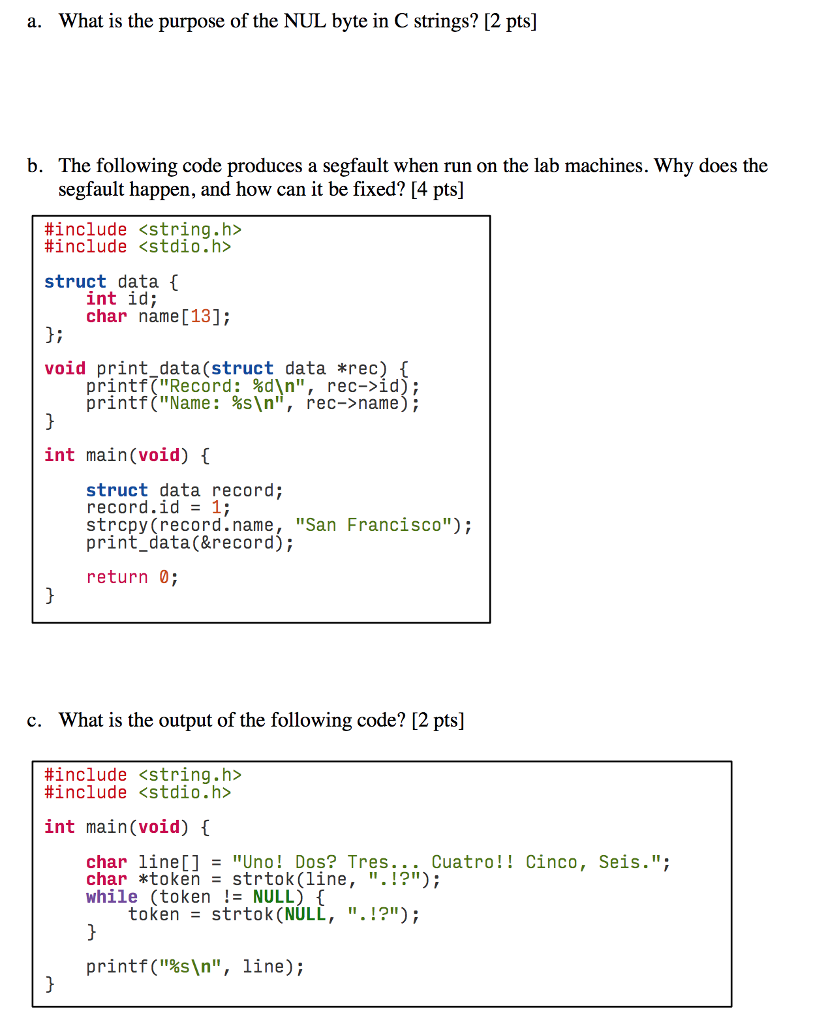

- Dont copy space nor new line srcpy in c serial number#
- Dont copy space nor new line srcpy in c serial#
- Dont copy space nor new line srcpy in c android#
Dont copy space nor new line srcpy in c serial#
For each star the command prints the stars serial number, name (if named), and coordinates x, y.Ĭhar cmd3 = "name" // finds closest pair of unnamed stars, and allows player to name the pair.Ĭhar cmd4 = "pairs" // prints list of all pairs of stars that have been named so far.Ĭhar cmd5 = "draw" // used to draw the universe. Takes one integer argument representing the number of stars to be created.Ĭhar cmd2 = "list" // prints list of all stars in the universe.

*char cmd1 = "bang" // creates a hypothetical universe comprised of stars only. *CLI FUNCTION (Command line interface implementation)*/ "To start playing, press the RETURN key.\n") "Well, maybe not the part about apple pies -)\n" "And that's exactly what we're going to do.\n" "In order to make an apple pie from scratch, you must first create the universe\n" Star_pairs named_stars //Array of named_universe_max_size, of which each element is a star_pairs structĬhar fbuffer_arr //Frame buffer Stars_single new_stars //Array of new_universe_max_size, of which each element is a stars struct Int star_two_serial //Serial number of second star in pair (integer)ĭouble distance_one_two //Distance (light years) between star one, two (double)Ĭontains all the data about a single universe*/ Int star_one_serial //Serial number of first star in pair (integer)
Dont copy space nor new line srcpy in c serial number#
Int star_serial_number //Star serial number (integer)ĭouble star_x //Coordinates of star x (double)ĭouble star_y //Coordinates of star y (double)Ĭhar star_name //Star name (a character string)Ĭontains data about a named pair of stars*/ Void refresh() //Clear the terminal and print the entire frame bufferĬontains all the data about a single star*/ Void write_at(int x, int y, char str) //Copy the string str to the frame buffer starting at position x, y Void clear() //Clear the frame buffer by filling it with white space It focuses on: lightness: native, displays only the device screen.
Dont copy space nor new line srcpy in c android#
Void plot(int x, int y, char c) //Store c in row y and column x of the frame buffer This application mirrors Android devices (video and audio) connected via USB or over TCP/IP, and allows to control the device with the keyboard and the mouse of the computer. #define universe_max_size frame_buffer_size_x * frame_buffer_size_y But be careful that one has some other traps for the unwary.Code: /*Define libraries to be included*/ If you know that you've allocated enough buffer somehow, it's OK to use these functions, but in most cases (and especially if the thing being copied came from the user), you'll want to look at strncpy.

Might be they wrote over internal structures, and some time later you'll get malloc crashing. Might be they wrote over something else that was already allocated, might be they wrote over unallocated space, might be that you got lucky and they wrote over something that nothing cares about. So what's going on? They wrote over something else! There's nothing stopping them from writing beyond what you've allocated, so they do. They just assume you know what you are doing, and go for it.Īs to why you didn't see a problem: Well, they wrote into that memory. strcpy/strcat have NO IDEA how much memory is at the other end of the pointer you gave them. The reason this works is that C has unchecked memory access.


 0 kommentar(er)
0 kommentar(er)
